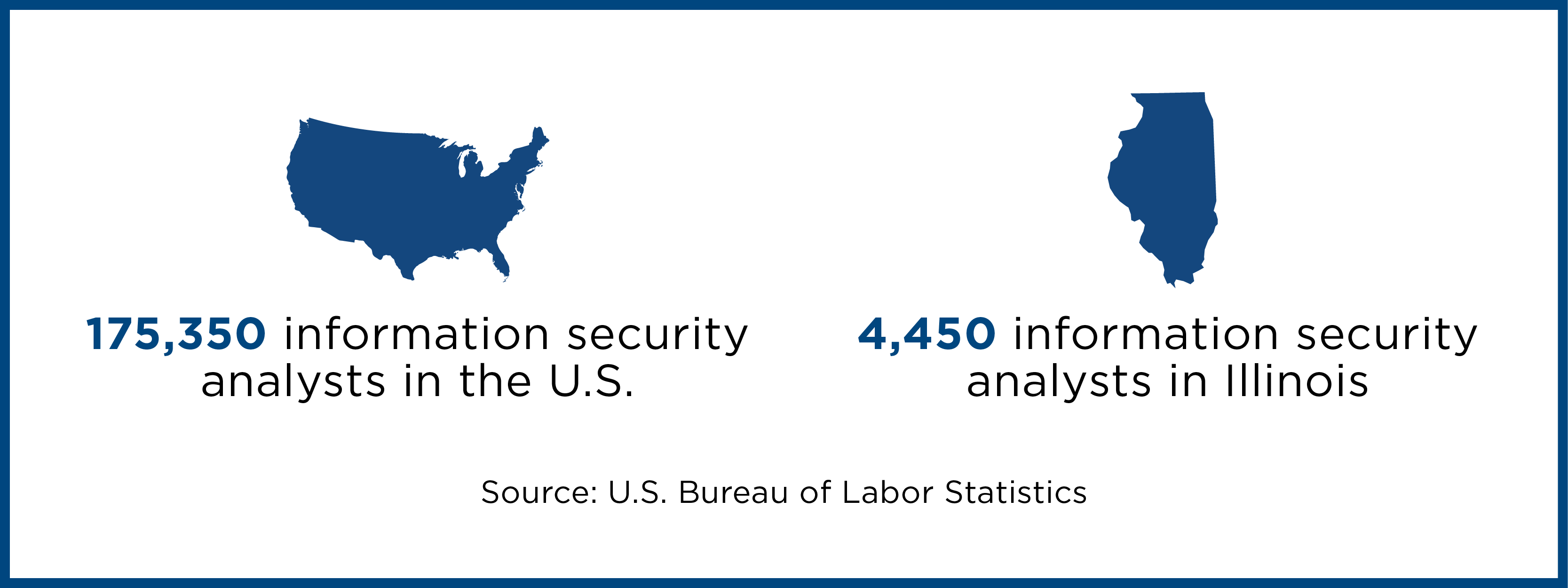Cybersecurity (BS)

Why study Cybersecurity?
Cybersecurity professionals are the digital world's first line of defense against evolving cyber threats to everything from personal data to critical infrastructure. Cybersecurity combines innovation and protection, using cutting-edge tools and techniques to outsmart cybercriminals and safeguard our digital future. As our lives become increasingly connected and opportunities for remote work continue to rise, demand for cybersecurity experts has grown across every industry.
Why study Cybersecurity at AU?
The Cybersecurity program at AU prepares you for tomorrow's threats, not just today's. As a Cybersecurity major, you’ll develop a strong background in traditional cybersecurity fundamentals. You’ll enhance your threat-detection abilities and strengthen your analytical capabilities while learning to work with emerging technologies, including AI-powered security tools.
You'll gain the programming and management skills you need to secure organizations' systems. Through courses that present perspectives from users, managers, policymakers, and ethical hackers and incorporate governance, risk, and compliance factors, you’ll learn to think like both a defender and attacker, ensuring you understand cybersecurity from every angle.
You’ll graduate prepared to defend critical systems across industries, including protecting patient data in healthcare, securing financial transactions, and safeguarding government infrastructure. You can also expand your career opportunities with a double major in Business Administration, Computer Science, Criminal Justice, Health Science, Political Science and Public Policy, or Psychology. Even with a second major, you’ll still be able to graduate in four years.
The safety of confidential data needs to be a concern for everyone. With cybercrime on the rise globally, public and private entities require personnel skilled in the protection of information assets.Veo Taylor, Assistant Professor of Cybersecurity
annual median salary for information security analysts
2024-2034 projected job growth rate

There are only two types of companies: those that have been hacked, and those that will be.Robert Mueller, former FBI Director
- Computer and network security
- Cryptography
- Cybersecurity governance, risk, and compliance
- Digital forensics
- Ethical hacking
- Networking
- Programming essentials
- Aurora Criminal Justice Association
- Computer Science Club
- Student worker in computer labs, information technology services

Experiential learning
As an AU Cybersecurity major, you will have the opportunity to complete an internship and gain hands-on experience in the field. Your classes will include an intensive portfolio of work and a capstone project that will showcase your skills and help you to secure a job after graduation.
Career possibilities
- Computer forensics analyst
- Information security analyst
- Information technology security officer
- Security analyst engineer
- Security consultant
- Security software developer
Career possibilities with advanced degree
- Chief information security officer
- Cybercrime investigator
- Cybersecurity director
- Network security engineer
- Risk manager
- Security architect